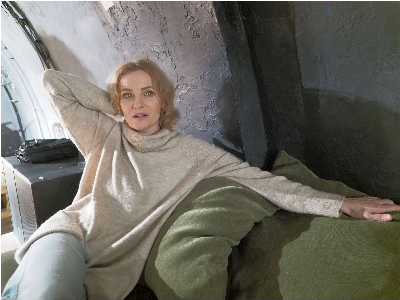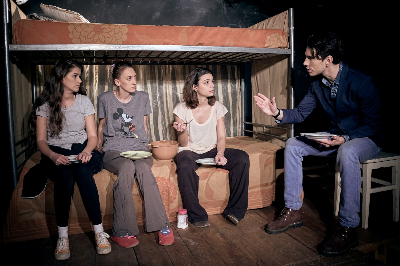
© Facebook Lia Bugnar
З 2025 року всі учні 11 класу в Румунії вивчатимуть театр як обов’язкову частину шкільної програми. Відповідне рішення ухвалило Міністерство освіти в межах оновлення структури навчального року 2025–2026. «Театр — це не просто мистецтво. Це спосіб вчитися співпереживанню, аналізу, самовираженню. Акторська практика допомагає дітям вийти за межі шкільної парти та зрозуміти себе й інших», — наголосила Лія Бугнар, відома румунська режисерка та драматург. Рішення стало відповіддю на багаторічні звернення педагогічних і культурних спільнот, які закликали посилити роль мистецтва в шкільному навчанні. Уроки театру включатимуть як теоретичні знання (основи драматургії, історія театру), так і практичні завдання — читання п’єс, сценічні вправи, створення мініспектаклів, участь у шкільних театральних фестивалях. Програма інтегрує елементи режисури, акторської майстерності та культурної спадщини. Румунія має понад 70 театральних закладів, зокрема 55 державних драматичних театрів та 17 дитячих і юнацьких. Це дозволяє країні зберігати потужну театральну інфраструктуру, яку підтримує держава. Зокрема, Міжнародний театральний фестиваль у Сібіу, що об'єднує митців із понад 70 країн, вже давно став візитівкою румунської культурної дипломатії. Шкільна театральна освіта покликана стати першим кроком у кар’єрі нових поколінь акторів, режисерів, сценографів та драматургів. Очікується, що театральний курс стане органічним доповненням до вже наявних програм неформальної освіти — таких як «Școala Altfel» («Школа по-іншому») та «Săptămâna Verde» («Зелений тиждень»), які триватимуть із 8 вересня 2025 до 3 квітня 2026 року.
Romanian Schools Introduce Mandatory Theatre Course
Starting in 2025, all 11th-grade students in Romania will study theatre as a compulsory part of the national school curriculum. The decision was made by the Ministry of Education as part of the restructuring of the 2025–2026 academic year. “Theatre is not just art. It’s a way to learn empathy, analysis, and self-expression. Acting practice helps children step beyond the classroom desk and better understand themselves and others,” emphasized Lia Bugnar, a renowned Romanian director and playwright. The initiative is a response to long-standing appeals from educational and cultural communities to strengthen the role of the arts in school education. The theatre course will combine both theoretical knowledge — such as the basics of dramaturgy and theatre history — and practical tasks, including reading plays, stage exercises, creating mini-performances, and participating in school theatre festivals. The program integrates elements of directing, acting techniques, and cultural heritage. Romania is home to over 70 theatrical institutions, including 55 state-funded drama theatres and 17 public theatres for children and youth. This solid infrastructure is supported by the state and plays a key role in sustaining the country's cultural landscape. Notably, the Sibiu International Theatre Festival, which brings together artists from over 70 countries, has long served as a symbol of Romanian cultural diplomacy. The introduction of theatre into schools is expected to be the first step in nurturing future generations of actors, directors, set designers, and playwrights. The theatre course is also set to complement Romania’s existing non-formal education programs, such as “Școala Altfel” (“School Otherwise”) and “Săptămâna Verde” (“Green Week”), which will run from September 8, 2025, to April 3, 2026.

©
1689